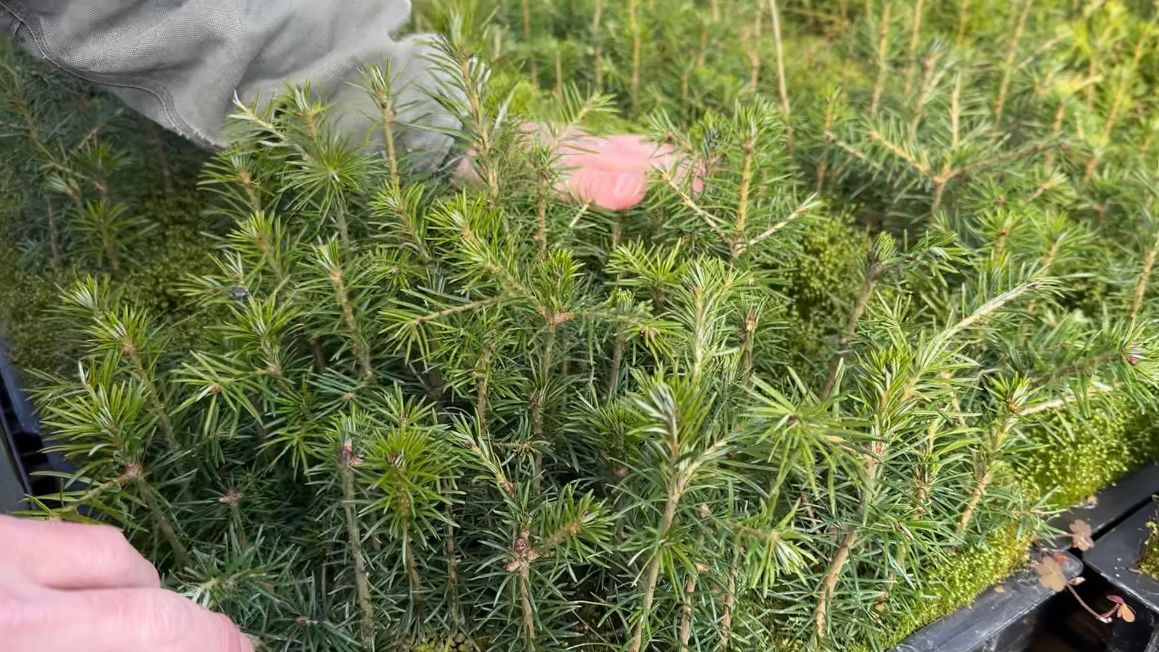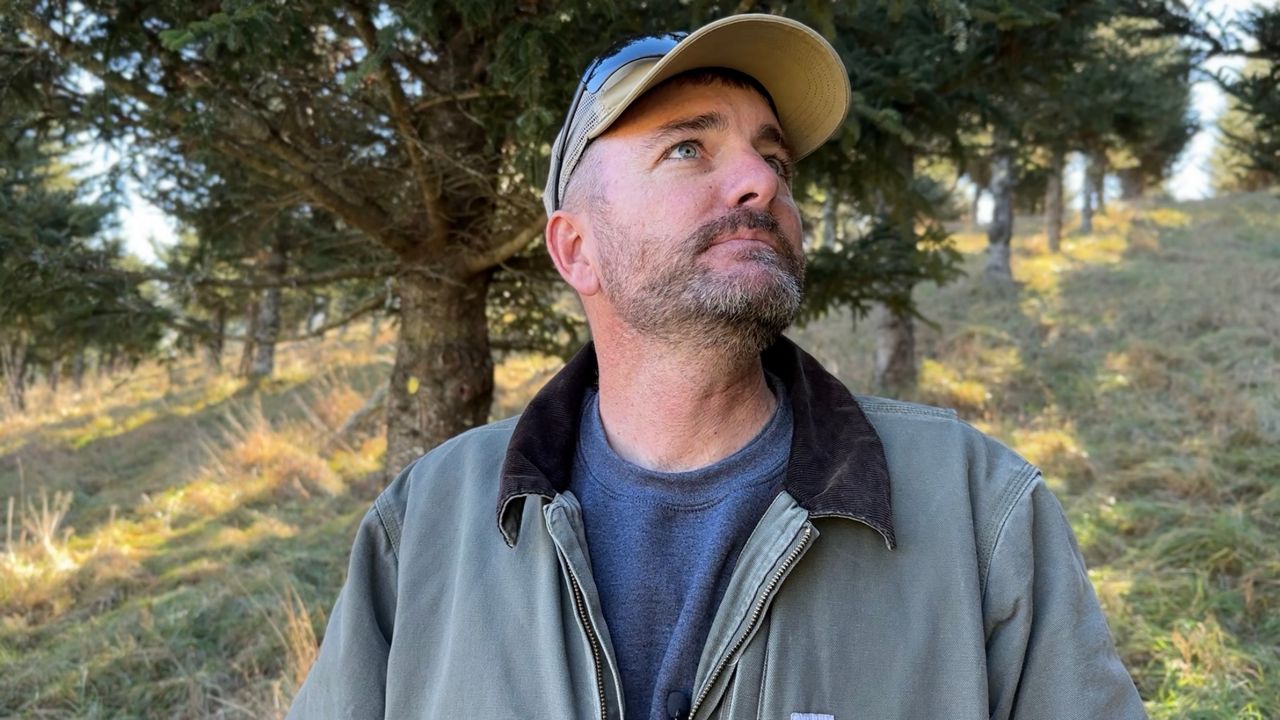ASHE COUNTY, N.C. – Beauty is in the eye of the beholder when it comes to Christmas trees, but certain traits tend to stand out – the smell, the thickness of the branches, the height, the number of needles it drops on the floor.
Upper Mountain Research Station is home to an elite selection of Christmas trees, handpicked for qualities like disease resistance, needle retention and aroma.

Researchers at N.C. State are working in conjunction with the staff at the station to genetically improve future generations of Christmas trees that will keep the industry sustainable.
“All these trees have a tag and you can see these tags on them. There are two copies of each one and we treat these trees like individuals,” Tracy Taylor, the superintendent of the research station, said. “Each tree has certain traits that we look for and our job here is to measure those traits and get those traits passed on into the seed, into the progeny of these trees.”
Ashe County, where the research station is located, is consistently first or second in the nation for Christmas tree production, and researchers are hoping this work will help it continue to thrive.
"It would be hard to put a price tag on these trees. I mean, there's years and years of work gone into developing these trees,” Taylor said.

About 5,000 Christmas trees are growing at the research station as part of the N.C. State Christmas tree genetics program.
Once the trees reach full production in another three years, it will be the only certified Fraser fir seed orchard in the world, and that orchard will eventually supply North Carolina’s Christmas tree growers.
“We'll be able to research from the seed orchard, the seed, the nursery, the field post-harvest, so it'll kind of close the loop for Upper Mountain to take tree research from start to finish,” Taylor said.
Thirty to 50 projects are going on at any one time at the station. In addition to trees, they work with pumpkins, corn, cows, turf grass and other agricultural products.
“There's a lot of things in America that can divide families, but a Christmas tree is one of the few things left that families tend to come together around at the holidays,” Taylor said.



-17?wid=320&hei=180&$wide-bg$)